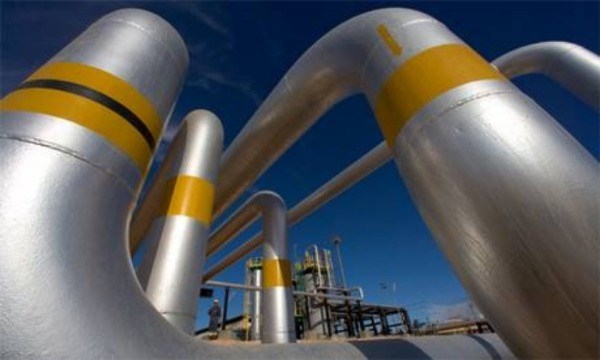Europe prepares for gas war between Russia and Ukraine
Countries in the EU have been buying increased quantities of gas for commercial and strategic reservoirs, filling all the available underground gas storage almost to the brim, in light of growing risks that the current gas war between Russia and Ukraine will escalate this winter.
In just over 3 weeks time, the current contract for the transit of Russian gas through Ukraine will expire. To this day, despite Russia’s annexation of Crimea and the war in the Donbas, nearly half of the gas supplied by Gazprom to the EU still passes through Ukraine.
Numerous attempts by Russia to bypass Ukraine, which have cost more than $20 billion over the last five years, have failed. The South Stream project was blocked by Bulgaria, Turkey refused to accommodate three export lines of the Turkish Stream, consenting to only one with a capacity of 15 billion cubic meters (bcm) per year. Gazprom’s last hope, the Nord Stream 2 project, sank in the territorial waters of Denmark.
Bureaucratic delays caused by the Danish authorities cost Gazprom dearly: although the company insists that it will be able to finish laying the Nord Stream 2 pipeline by the end of the year, there will not be enough time to launch it before the critical date.
The gas pipeline, with a capacity of 55 bcm per year and costing $10 billion, will start operating only in the middle of 2020, admitted Russian Vice Prime Minister Dmitry Kozak.
Consequently, the repeatedly voiced plans to deprive Kyiv of transit revenue have come to nothing, and Russia’s leaders have been forced to come to the negotiation table. The last round of negotiations took place in Brussels at the end of October, without any noteworthy results.
“I’m disappointed,” said Maros Sefcovic, Vice President of the European Commission for the Energy Union, after the meeting.
Kyiv offered to sign a 10-year contract for 90 billion cubic meters per year, with 60 billion of fixed volume and 30 billion of “variable”. Gazprom responded at the end of October with a one-year contract, subject to the waiver of all lawsuits and other claims.
The Arbitration Institute in Stockholm has awarded Naftogaz $2.6 billion in damages in a gas dispute against Gazprom. The Ukrainian company is also threatening to file lawsuits for a further $22 billion.
“This is ridiculous! They are simply aggravating the situation,” exclaimed Russian President Vladimir Putin at the BRICS summit in mid November. He said that Russia is offering a 25% discount on gas, provided that Ukraine waive all of its “absurd” claims. Otherwise there is a risk that transit will cease, Putin warned.
Europe is preparing for exactly such a scenario, according to information presented by the Cedigaz consulting firm at the 24th International Gas and Power Summit in Paris. According to the statistics, countries in the EU have accumulated an unprecedented quantity of strategic gas: the underground reservoirs are 96% full, an all-time record.
In addition, the rate at which liquefied natural gas (LNG) is being supplied is accelerating at an explosive rate. This year, LNG imports reached the 30 million ton mark, which is 80% more than last year. France, Spain and Italy have bought 50-75% more, and the UK, the Netherlands and Greece have bought three times as much.
“Europe has apparently been preparing for a decisive and final Russian-Ukrainian gas war,” concludes Alexander Razuvaev, director of the Alpari Information Analysis Center.
The chances that Ukraine will agree to Gazprom’s demands are slim, he believes. If a transit agreement is not signed, Kyiv will lose out on $2-3 billion per year, and Gazprom will find itself with a new headache in the courts.
As a consequence of Naftogaz’s lawsuits, European courts have repeatedly seized Gazprom’s assets and accounts, and although Kyiv has been unable to collect any significant sum, it has effectively managed to isolate the Russian company on the international capital markets.
In November, Gazprom was forced to cancel its placements of Swiss franc-denominated eurobonds, because the risk arose that all of the borrowed funds would be seized immediately. Also affected was Gazprom’s subsidiary in Luxembourg, Gaz Capital, which for years had been used to place foreign currency bonds on the European market on Gazprom’s behalf.
Attempting to hide, Gazprom moved its eurobond program to London, but there, too, legal experts were unable to guarantee that the funds would be safe from seizure, a source close to the company told Interfax.
